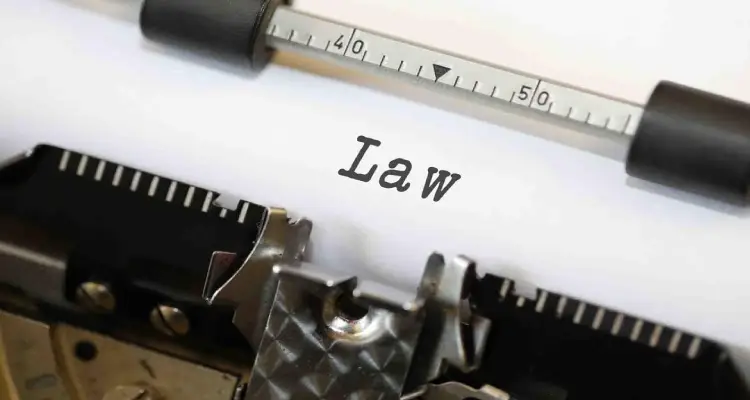
What is the Law of Sale of Property? Understanding the Legal Framework and Transfer of Property
Understanding of the laws governing sale of property is must because it defines how actual ownership passes from one owner to other during the sale and purchase of real estates.
This law describes the legal responsibilities and obligations of both the buyer and the sellers before actually selling and buying property.
This blog aims at discussing the following aspects; The provisions of the law of sale of property; Transfer of property act; A brief overview of past papers that will help student in understanding the importance of the Transfer of Property Act.
Other events may include the Law of Sale of Property for which there is a full name known as the Law of Sale of Property Amendment Act

The law of sale of property means the legal provisions that define the sale of property that is in the nature of an interest in land or an interest in the Building. They are conducted in writing with written agreements contracts and deeds to conform the legal repercussions conformity the rights of the two parties involved.
In India, the most relevant legislation, which regulates sale of property is the ‘Transfer of Property Act’ 1882, that lays down the conditions under which immovable property can be transferred. This Act also contains provisions on the conditions of the sale, the conditions of the buyer and the seller, the process of selling valid property and kinds of property sale under the Act.
Also read: Understanding Real Estate Commissions
Key Features of the Law of Sale of Property
Transfer of Ownership: The main thrust of the law of sale of property if the passing of ownership of the property sold from the seller to the buyer. Another enumerated condition of the seller is that full legal ownership or the only dominion is principally required to the prepared beneficial certificate in clear and marketable form thus you see the property or house is supreme and without dispute, this is because title is superior to a beneficial interest.
Immovable Property: The Transfer of Property Act mostly concerns itself with the sale of property, which is often regarded as hereditament, property that cannot be moved from one place to the other such asanches of land, houses and buildings. Transfer of movable products like car or furniture is under different laws like Sale of Goods act 1930.
Legal Documentation: Any property sale has to be done under a sale deed which is functional legal document that captures the contract of selling of the property between the buyer an seller. The following document has to be lodged with the local registrar’s office under the Registration Act 1908 to become enforceable.
Consideration: The buyer ought to bring to the table a certain sum of money as the price for the property. This means that for a sale of property to be enforceable under law there must be proper and proper consideration.
Delivery of Possession: Often after the sale has been made, the seller has to pass the physical restraints of the property to the buyer. This involves ensuring that you sign over the physical keys, title deeds or any other documents more so the deeds of the given property.
Encumbrances and Liabilities: For example, before selling or transferring the property, the seller is free to cancel any loans, taxes or legal suits associated with the property . The buyer has a right to be informed about the existence of encumbrances in case of purchasing.
Rights of the Buyer and Seller: The rights of both the buyer and the sellers when it comes to property sale have individual responsibilities. The buyer can examine and require any details touching on the title and state of the property and the seller has the right to claim the agreed on consideration. The further paper aims at the provisions of the property Act:
Definition of Sale (Section 54): Section 54 of the Act defines sale as a transfer of the ownership of goods made for a price pay or payable. A sale deed has to be registered, and it has to contain particulars of the buyer and the seller, characteristics of the property and the consideration agreed upon.
You may also read blog - Is It Good to Invest in Commercial Property in Gurgaon?
Rights and Liabilities of Buyer and Seller (Section 55): This segment includes the responsibilities of the purchaser as well as the vendor during a transaction of conveyancing. Responsibility of the seller is to disclose any defect in the property, on the part of the buyer; he is required to pay consideration for the property and take delivery of the property.
Mode of Transfer: The Act translates that immovable property can only be transferred through a registered deed, and the common resonance agreements are prohibited for property sales.
Doctrine of Part Performance (Section 53A): Purchaser under the ??onica titles acquires title as against the vendor, where the sale deed has not been registered but the purchaser has taken physical possession of the property and has performed all the conditions stipulated in the agreement, In Anglo-Saxon law, this doctrine safeguards a buyer in the delivery who has taken symbolic delivery of the property and who has complied with the formalities of the contract even if the deed of conveyance has not been registered But the buyer cannot take title to the house without proper transfer of title.
Mortgages and Charges: The Act also deals with mortgages and charges on property, to give the creditor substantive remedies where property is provided as security for the loan.
Conclusion
Actually the law of sale of property is very relevant in business particularly in conveyance of real estates as it acts as a check and balance to ensure that every transfer of property is legal and the rights of both buying and selling entities are protected by law. According to the Transfer of Property Act 1882 this legal formation outlines detailed provisions on how the immovable property should be sold, what rights and liabilities of the parties involved and the process of registration.







